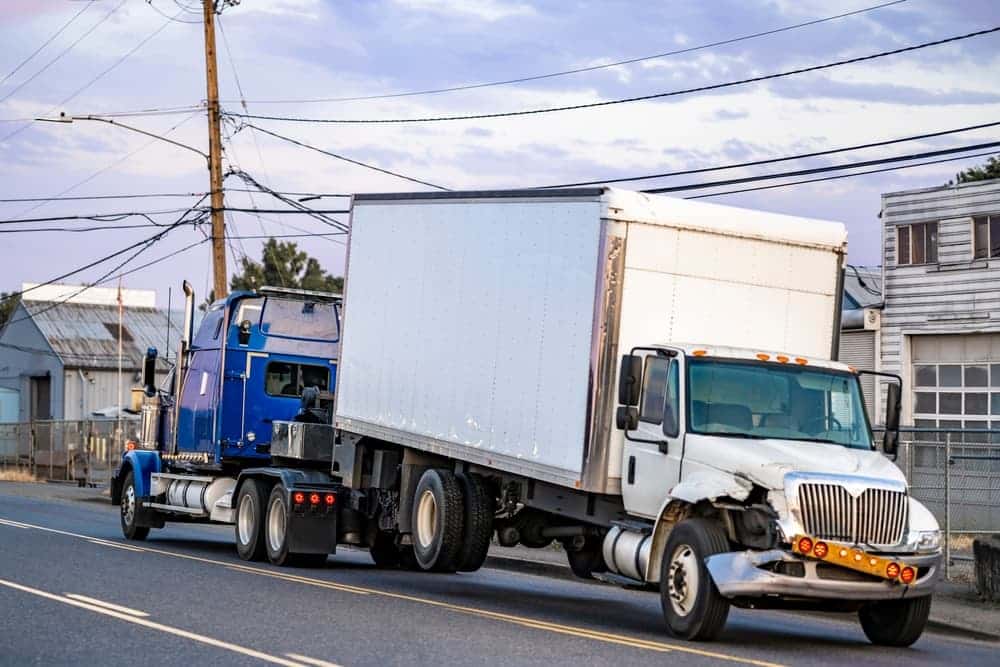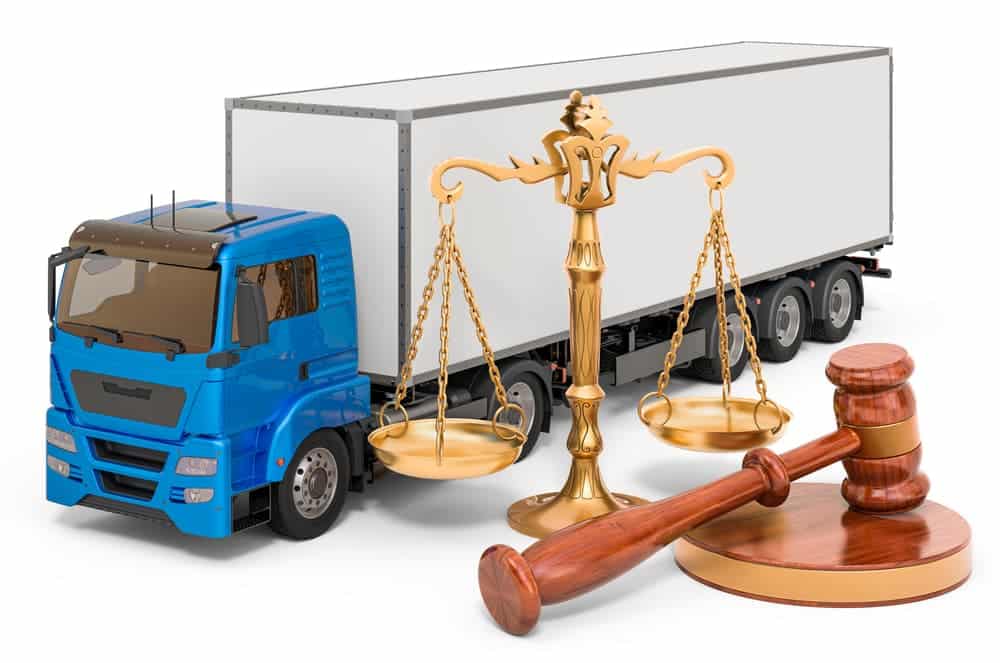Truck accidents can be devastating, both physically and emotionally. The massive size and weight of commercial trucks often cause serious injuries or even fatalities when involved in collisions with smaller vehicles. Often, accident victims do not know where to begin when picking up the pieces following such a life-altering event. Fortunately, the law provides important rights and professional assistance is available.
If you or a loved one has been in a truck accident, understanding your legal rights and the compensation you may pursue is critical to your future. An experienced San Jose truck accident lawyer can provide valuable advice regarding your claim and work diligently to get you the financial recovery you need.
A Background on Truck Accidents

Truck accidents are unlike other types of collisions, as several details set them apart. Knowing a bit about trucking collisions is helpful before understanding how compensation claims work.
What Causes Collisions with Commercial Trucks?
Truck accidents happen for many reasons. Some of the most common causes of collisions with large trucks include:
- Driver fatigue: Extensive hours on the road can lead to drowsy driving, which can impair judgment and reaction times.
- Distracted driving: The use of mobile phones, GPS, and other distractions can divert a driver’s attention from the road.
- Speeding: Driving over the speed limit or too fast for conditions can increase stopping distances, reduce control, and make impacts much more severe.
- Poor weather conditions: Rain, snow, fog, or ice can make roads hazardous, and some drivers may not adjust their driving accordingly.
- Mechanical failures: Issues with brake failures, tire blowouts, or engine problems can lead to a loss of control.
- Overloading: Exceeding weight limits can affect a truck’s stability and braking ability, increasing the risk of collisions with others in the surrounding area.
- Inexperience: Lack of proper training or experience can lead to poor decision-making and handling of a commercial vehicle.
- Improper maintenance: Neglecting regular maintenance can result in mechanical failures that cause accidents.
- Aggressive driving: Tailgating, weaving in and out of traffic, and road rage can lead to dangerous situations.
- Driving under the influence: Alcohol or drug use impairs physical ability, vision, and judgment, significantly increasing the risk of collisions.
Understanding what caused your truck accident is essential, as this plays a substantial role in compensation claims. Your lawyer can investigate what factors led to your collision and collect data and evidence to prove it.
Truck Accident Injuries
Injuries from trucking accidents tend to be even more serious than those from other types of vehicular collisions, especially when the impact of the crash is substantial. Injuries commonly linked to these types of accidents include:
- Traumatic brain injuries: Injuries to the brain that occur from sudden impacts of jolts, leading to concussion or more severe brain damage.
- Spinal cord injuries: Damage to the spinal cord can result in paralysis or chronic pain, among other unfortunate issues.
- Soft tissue injuries: These include sprains, strains, and contusions affecting muscles, ligaments, and tendons.
- Lacerations and abrasions: Cuts and scrapes caused by broken glass or debris can develop infections if not treated promptly.
- Fractures: Broken bones are common in truck accidents, especially in the arms, legs, face, and ribs.
- Internal injuries: Injuries to the organs, including the liver, kidney, and lungs, and internal bleeding.
- Burns: Truck accidents can sometimes lead to fires, resulting in burn injuries.
Seeking prompt medical attention is key after a truck accident. Not only is it essential for your physical recovery, but it also helps build your medical records, which play a large role in securing fair compensation.
Liability for Trucking Collisions

Liability in a truck accident can involve multiple parties, depending on the circumstances. Some of the entities that may be liable include:
- Truck driver: If the driver was negligent (e.g., distracted, fatigued, or under the influence), they can be held responsible.
- Trucking company: Employers can be liable for their employees’ actions under the doctrine of vicarious liability, especially if they encourage unsafe practices or fail to provide adequate training. Trucking companies can also be liable for inadequate truck maintenance and repairs.
- Vehicle manufacturer: If a defect in the truck or its components contributed to the collision, the manufacturer may be at fault.
- Maintenance providers: When a truck is improperly maintained or inspected, the maintenance providers could be held accountable.
- Loaders and shippers: If the cargo was improperly loaded or secured, leading to an accident, the parties involved in loading the truck may share liability.
- Governmental entities: When hazardous road conditions, such as poor lighting or cracked pavement, contribute to an accident, the governmental agency in charge of that roadway might be liable.
Determining liability can be complex but necessary. Understanding who played a part in your accident is necessary to ensure you seek compensation from the correct parties.
What Makes Truck Accident Cases So Challenging?
Truck accident cases are among some of the most difficult to navigate for numerous reasons, including:
- Complex regulations: The trucking industry is governed by various state and federal regulations, which can complicate cases. Understanding these regulations is crucial for establishing negligence.
- Severe injuries: Truck accidents often result in catastrophic injuries or even fatalities, which can lead to complex medical and financial considerations, including long-term care and lost earnings.
- Insurance issues: Trucking companies typically carry higher liability insurance limits, but they may also have teams of lawyers to defend against claims, making negotiations more challenging.
- Evidence gathering: Collecting evidence for a trucking collision case can be more difficult, as important data, like driver logs, maintenance records, and electronic data from the truck, can be hidden or destroyed.
While it may be more trying to seek justice and financial recovery following a trucking collision, it is not impossible. Because these cases are more involved, having a seasoned truck accident lawyer on your side is particularly important to combat any obstacles, protect your rights, and fight aggressively to get you the case result you deserve.
Key Considerations Before Suing

Before filing a lawsuit for a truck accident, you should make certain considerations. These factors can help dictate specific details, such as when you should file a lawsuit and how much time you have to do so.
Liability Assessment
Establishing who is liable for the accident is critical. Doing so requires a thorough investigation, which may involve accident reconstruction experts, eyewitness testimony, and a detailed review of police reports.
Without first clearly identifying liable parties, you will not know who to sue for your truck accident. You must assess liability to know who you have a valid claim against.
Insurance Claims
Before pursuing a lawsuit, it is often advisable to file a claim with the responsible party’s insurance company. For example, if the trucking company is responsible, you can file a claim through their insurance to seek fair compensation.
Filing an insurance claim sometimes leads to a settlement on its own without the need for litigation. If your attorney can settle your claim, there is no need to sue. However, if the insurance company is not cooperating or unwilling to settle fairly, you may have the option to file a lawsuit.
Statute of Limitations
Each state has its own statute of limitations for personal injury claims, including truck accidents. Victims typically have a limited time frame to file a lawsuit, often ranging from one to six years from the date of the collision. Failing to file your claim on time can result in forfeiting your right to pursue a claim altogether. Hiring legal representation right away is essential to avoid missing any strict deadlines.
Types of Damages You Can Sue For in a Truck Accident

Victims of truck accidents can seek various types of damages when filing a lawsuit, categorized primarily into economic, non-economic, and punitive damages. Understanding these categories can help in assessing the potential compensation you might secure.
Economic Damages
Economic damages are tangible losses that can be easily quantified. They typically include:
- Medical expenses: This covers all medical costs related to the accident, including emergency room visits, hospitalizations, surgeries, rehabilitation, and ongoing medical treatment. You may also claim future medical expenses if ongoing care is anticipated.
- Lost income: If your accident resulted in an inability to work, you can claim lost income. This includes both the earnings lost during your recovery and potential future earnings if the injuries result in long-term disability.
- Property damage: You can seek compensation for damage to your vehicle or any personal property damaged in the collision.
- Out-of-pocket expenses: These include costs incurred as a result of the truck accident, such as transportation to medical appointments, home modifications, or assistive devices.
Because economic damages are easier to quantify, evidence of these losses is usually more readily available.
Non-Economic Damages
Non-economic damages amount to intangible losses that are more subjective and can be harder to calculate. These damages can include:
- Pain and suffering: You may claim compensation for physical pain and emotional distress resulting from your accident. This may also encompass chronic pain, anxiety, or depression stemming from the incident.
- Loss of consortium: This pertains to the impact the accident has on your relationships with your spouse and family members. Spouses may claim loss of companionship, while children may claim loss of parental affection and support.
- Emotional distress: If the accident leads to severe emotional or psychological issues, you may claim damages for emotional distress, which can include anxiety, PTSD, or other mental health conditions.
- Loss of enjoyment of life: If injuries prevent you from participating in activities you once enjoyed, you may seek damages for loss of enjoyment of life.
While non-economic damages can be trickier to prove, your truck accident lawyer can utilize available evidence and obtain documentation to substantiate your claims and assign a monetary value to your losses.
Punitive Damages
Punitive damages are not available in all cases. These damages do not address specific losses but instead punish the defendant for particularly egregious behavior and deter others from similar actions.
In truck accident cases, punitive damages might be applicable if the truck driver was under the influence of drugs or alcohol, engaged in reckless driving, or if the trucking company grossly neglected safety standards.
Proving Your Case

Successfully suing for damages in a truck accident case requires you to establish a clear connection between the accident and your injuries and damages. You must satisfy the elements of negligence, which include:
- Duty: The defendant owed you a duty of care at the time of the accident.
- Breach: The defendant’s actions caused them to breach their duty of care.
- Causation: There is a direct relationship between the defendant’s wrongdoing and your accident.
- Damages: You’ve suffered injuries and other losses as a result of your collision.
Your truck accident lawyer can use evidence to prove all elements of negligence, including your damages.
Evidence for Trucking Collision Cases
Evidence can significantly help prove key details in a truck accident case, including cause, liability, and damages. Some of the evidence most often used in these cases includes:
- Accident reports
- Witness statements
- Photographs and videos
- Black box data (EDRs)
- Driver logs
- Maintenance records
- Cargo loading documents
- Medical records
- Expert testimony
- Surveillance and traffic camera footage
Collecting and preserving evidence promptly is essential, as it can significantly influence the outcome of your case. You can provide your lawyer with any evidence and documentation you might have, and your attorney can continue requesting and obtaining evidence as your case proceeds.
Following a Truck Accident, You May Have the Opportunity to Sue for Financial Recovery
When you’re involved in a commercial truck accident, you face substantial physical, emotional, and financial challenges. Understanding what you can sue for and the types of damages available is vital to seeking the compensation you deserve. Whether you’re dealing with medical bills, lost earnings, or emotional distress, pursuing a legal claim can help alleviate some of the burdens following such a traumatic experience.
Following a trucking collision, it’s crucial to consult with a qualified personal injury attorney to explore your legal options. You don’t have to face your legal battle alone; legal support is available to guide you every step of the way.
